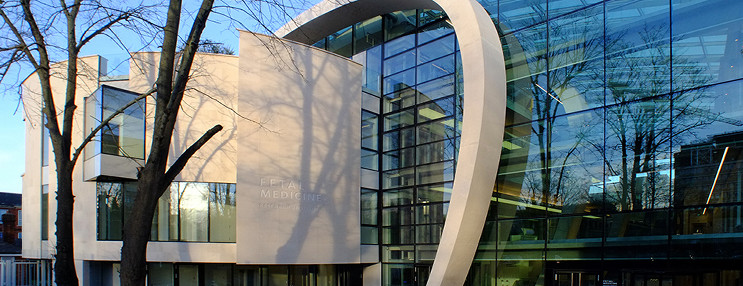
Key points
- Nerve biopsy is the gold standard for diagnosis of vasculitic neuropathy.
- Obstructive sleep apnoea may cause peripheral neuropathy – sleep pattern should form part of history-taking.
- Duloxetine is worth a try in chemotherapy-induced neuropathy patients.
- Plasmapheresis may help complex regional pain syndrome symptoms.
- A conference doesn’t need to be expensive to provide a decent lunch.
Whether you’re a Consultant Neurologist hoping for an update, a trainee eager to bypass laborious peripheral nerve and muscle chapters, or a physiotherapist keen to better understand patients, this conference has something for everyone. Although in previous years the symposium provided niche talks aimed at neuromuscular specialists, in recent years it has provided a more practical approach targeting a wider audience.
Not only is it my most affordable study leave request (to the relief of my line manager), but every year I leave with useful nuggets of information for my next clinical encounter with a nerve or muscle patient. I also leave thinking “I really should know this, thank goodness I came”. This is my third year in a row attending the King’s College Neuromuscular Disease Symposium, and I will continue to do so until HEE remove it from the ‘mandated/optional course’ list.
Established in 2001, this conference is held annually in the stylish Fetal Medicine Research Institute, a stone’s throw from the station. Seats are comfy with plenty of leg room, and there’s fresh fruit, croissants and a nice tea selection to see you through the day (and coffee of course).
Dr Rob Hadden, Consultant Neurologist, Vice President of the British Peripheral Nerve Society and Lead for the Regional Peripheral Nerve Service at King’s, kick-started the day with a talk on vasculitic neuropathy. My first nugget of information appeared in the first slide – we are taught endlessly about CIDP but vasculitic neuropathies are actually commoner than CIDP, and nerve biopsy is the gold standard for diagnosis.
Then, as if you needed reminding that you probably shouldn’t have had that extra pain au chocolat, Dr Abd Tahrani, NIHR Clinical Scientist and Honorary Consultant Endocrinologist in Birmingham, reminded us that diabetes is the leading cause of neuropathy globally and that almost 30% of those with prediabetes have a painful neuropathy. Interestingly (my second nugget), obstructive sleep apnoea, which we know is associated with obesity, is more likely in those with insulin resistance, and can itself cause peripheral neuropathy. It appears that obesity and insulin resistance, as well as hyperglycaemia can cause nerve damage.
As more cancer drugs are fast-tracked through the NHS, more horrific side effects seem to be emerging. Dr Sarah Flatters, Senior Lecturer at KCL, gave a much-needed talk on chemotherapy-induced peripheral neuropathy. As well as an overview of the clinical presentation, prevalence and treatments, Dr Flatters stunned the audience with her research outlining causal mechanisms and a possible biomarker to identify susceptible patients. My third nugget was learning duloxetine is the only agent associated with a positive outcome in these patients, and that cold allodynia is a key chemotherapy-related neuropathy symptom.
Complex regional pain syndrome (CRPS) and fibromyalgia were boldly tackled by Dr David Andersson, Clinical Scientist at KCL. This compelling talk proved a useful introduction and my fourth nugget – we can treat CRPS with plasmapheresis. This has been shown to improve CRPS symptoms, which coincides with the emerging concept that CRPS involves sensitisation of nociceptors by autoantibodies, as shown in mouse models. Although there is no effective treatment, fibromyalgia appears to involve similar mechanisms.
If neurophysiology is your thing, the vibrant talk on antibody-mediated nodo-paranodopathies in GBS and CIDP variants by Professor Antonino Uncini from D’Annunzio University of Chieti-Pescara, Italy, captured the audience. His explanation of mechanisms of nerve injury, electrophysiological and pathological findings, and how to avoid misdiagnosis, were particularly interesting.
As mentioned, this conference is cost effective, however, we were spared the budget sandwiches filled with questionable contents and given a variety of fresh food options. In fact, I went back for more, not because it was free (although this certainly helps), but because it was genuinely tasty.
After lunch, Mr Henry Willmott, Consultant Orthopaedic Surgeon at Conquest Hospital in Hastings, gave a spirited and surprisingly entertaining talk on musculoskeletal foot and ankle pain. Neurology referrals for foot pain are common, and Mr Willmott gave us a clear, pragmatic approach we can apply to practice. Cavovarus foot deformity that causes pain, can occur secondary to balance and proprioception issues, and spasticity and weakness, all commonplace in a neurology setting. I have a better grasp of when I should refer to orthopaedics, and plan to practice the foot exercises he demonstrated to avoid a foot deformity of my own!
Let’s not forget those ‘case presentation’ learners out there. Dr Charlotte Dougan, Consultant Neurologist at the Walton Centre in Liverpool, presented a case on riboflavin-responsive neuromyopathy due to multiple acyl-CoA dehydrogenase deficiency. Jo Reffin, physiotherapist at King’s, presented an interesting case of the services involved in facilitating a successful pregnancy in FSHD. Dr Mohamed Mahdi-Rogers, Consultant Neurologist at King’s, presented a patient with refractory painful neuropathy who, after skin biopsy and microneurography, was found to have CASPR2 antibody-mediated disorder.
Dr Michael Rose, Consultant Neurologist at King’s, provided valuable insight into successful assessment and management of referrals to the muscle clinic with fatigue. Naturally, the nemesis chronic fatigue syndrome (CFS) was mentioned (for the first time Lyme was not brought up, thankfully) and, I learnt that cognitive behavioural therapy is worth considering for negative thoughts about fatigue in all cases, and not just CFS.
The day ended with a captivating talk by Dr Stefan Brady, Neuromuscular Consultant at Southmead Hospital in Bristol, on recent developments in muscle disease. This is an exciting area of neurogenetics and gene therapy gives hope to those with hitherto untreatable conditions.
